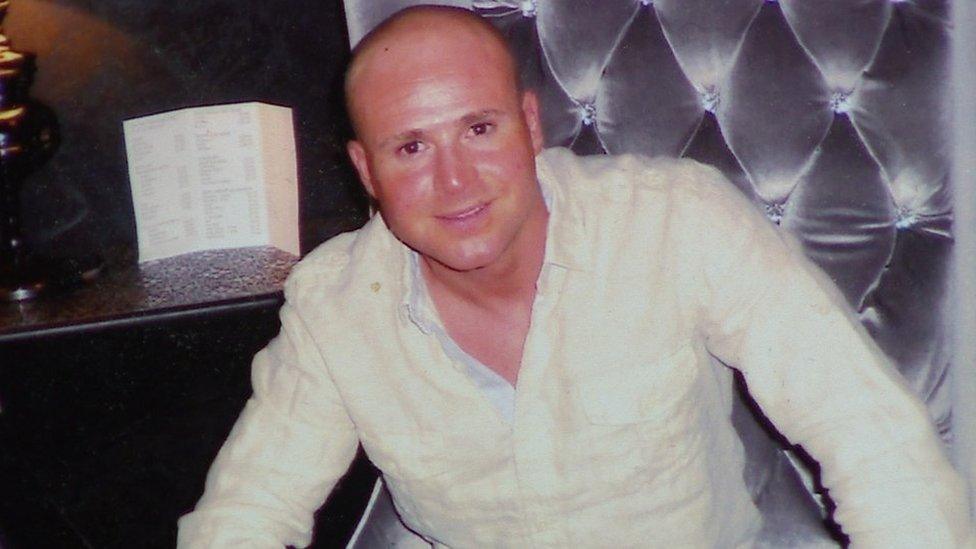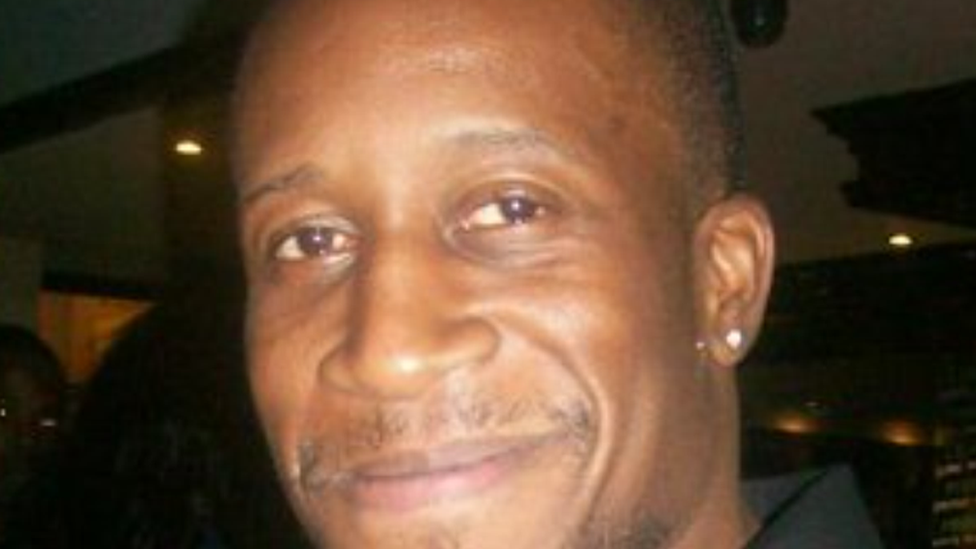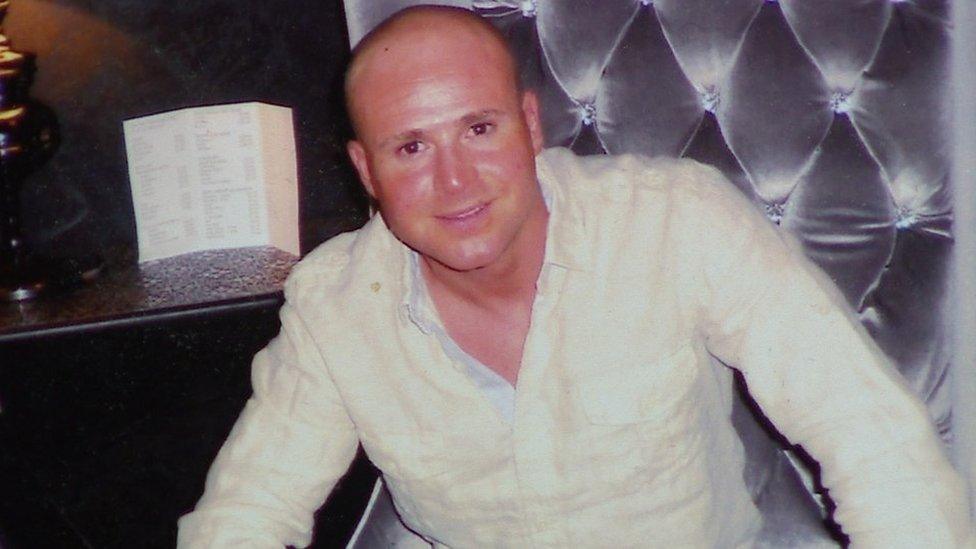Neal Saunders: Police training must improve after death - coroner
- Published

Neal Saunders, 39, was detained after police were called to his father's flat in 2020
Police and paramedics should undergo joint training after a man, who was restrained by police officers for an hour on the floor of his father's flat, died, a coroner has said.
Neal Saunders, 39, was detained when police were called to a reported assault at the home in Langley, Berkshire, in September 2020.
He died the following day at Wexham Park Hospital.
An inquest jury this month found he had been appropriately restrained.
Reading Coroner's Court heard police suspected Mr Saunders had Acute Behavioural Disturbance (ABD) and called for an ambulance.
Mr Saunders was carried to the vehicle in a prone position (lying flat on his stomach), despite police training that this was not medically advisable, the inquest was told.
In the ambulance he suffered a cardiac arrest while he was handcuffed to a stretcher and kept prone by a paramedic working for a private contractor, Polaris Medical.
Berkshire Senior Coroner Heidi Connor recorded that his death resulted from multi-organ failure following a second cardiac arrest in hospital and his use of cocaine.
She said further factors included agitation and resistance against restraint.

The coroner made reference to Leroy Junior Medford who died in custody after taking heroin in his cell in 2017
Recommending joint training in a report to prevent future deaths, external, the coroner said it appeared police were given more training on ABD than paramedics.
She said: "We heard, for instance, that police training includes reference to prolonged restraint being dangerous. The paramedic evidence we heard indicated that this was not known by them."
Ms Connor said Thames Valley Police - and police nationally - should review and improve its ABD training.
She added that guidelines from the Joint Royal Colleges Ambulance Liaison Committee (JRCALC), which provides clinical advice to ambulance services in the UK, should also be reviewed.
The coroner also referred Thames Valley Police and the College of Policing to a similar report she published in July 2019, following the death of Leroy Medford in 2017.
She wrote: "I raised a number of concerns about police training, and received responses from Thames Valley Police and the College of Policing.
"I am concerned that the issues raised around training in that report have been insufficiently addressed. The only substantive change appears to relate to better remote access to guidance."
The police and ambulance services have until 10 February to respond.

Follow BBC South on Facebook, external, Twitter, external, or Instagram, external. Send your story ideas to south.newsonline@bbc.co.uk, external.
- Published2 December 2022

- Published17 November 2022

- Published15 June 2022

- Published26 June 2019
